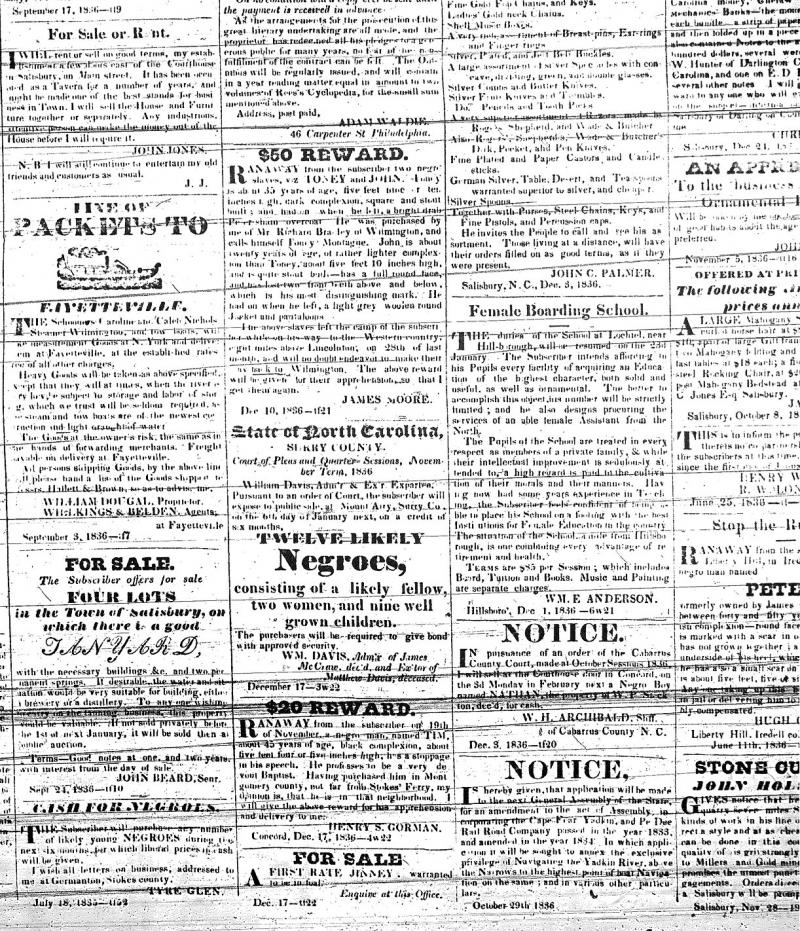Carolina Watchman ads: January 7, 1837 (Page 4 of 4)
Scanned page of classified advertisements in the January 7, 1837 issue of the Carolina Watchman. The row on the furthest left are advertisements for sale or rent of a house, room on boats shipping goods from N. York to Fayetteville, and enslaved Black people.
The next row harks a $50 award for a capture of a runaway enslaved Black men, Toney and John, an announcement for the court of pleas and quarter session, sale of enslaved Black children and women, $20 award for a runnaway enslaved Black man named Tim, and a sale of a young horse.
The third column advertises enrollment to female boarding school, a sale of an enslaved Black man, Nathan, and applications for gaining navigation rights of the Yadkin River.
The farthest right column reaches out for those interested in an apprenticeship at the Coach and Ornamental Painting, capture of a runaway enslaved Black man named Peter, and a stone cutting job.
To read the other pages of this newspaper go to: http://digital.ncdcr.gov/cdm/compoundobject/collection/p15016coll1/id/70...

Jones, Hamilton C. Carolina Watchman (Salisbury, NC), January 7, 1836. North Carolina Digital Collection. http://digital.ncdcr.gov/cdm/compoundobject/collection/p15016coll1/id/70... (Accessed December 31, 2018).
Public Domain
Public Domain is a copyright term that is often used when talking about copyright for creative works. Under U.S. copyright law, individual items that are in the public domain are items that are no longer protected by copyright law. This means that you do not need to request permission to re-use, re-publish or even change a copy of the item. Items enter the public domain under U.S. copyright law for a number of reasons: the original copyright may have expired; the item was created by the U.S. Federal Government or other governmental entity that views the things it creates as in the public domain; the work was never protected by copyright for some other reason related to how it was produced (for example, it was a speech that wasn't written down or recorded); or the work doesn't have enough originality to make it eligible for copyright protection.
Add a comment
PLEASE NOTE: NCpedia provides the comments feature as a way for viewers to engage with the resources. Comments are not published until reviewed by NCpedia editors at the State Library of NC, and the editors reserve the right to not publish any comment submitted that is considered inappropriate for this resource. NCpedia will not publish personal contact information in comments, questions, or responses. If you would like a reply by email, note that some email servers, such as public school accounts, are blocked from accepting messages from outside email servers or domains. If you prefer not to leave an email address, check back at your NCpedia comment for a reply. Please allow one business day for replies from NCpedia. Complete guidelines are available at https://ncpedia.org/about.